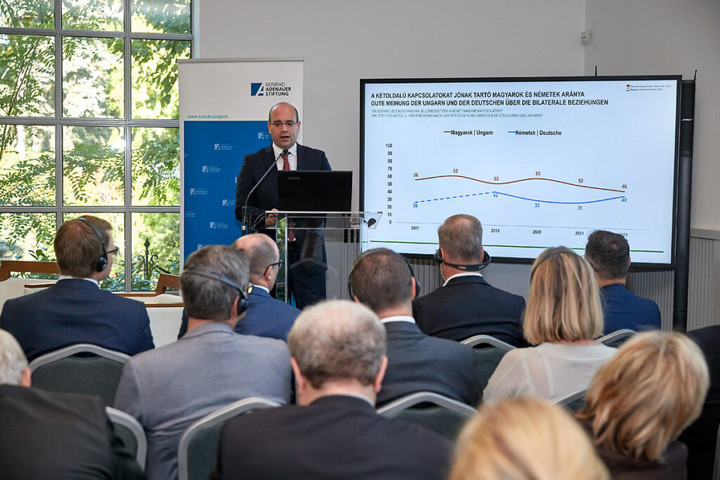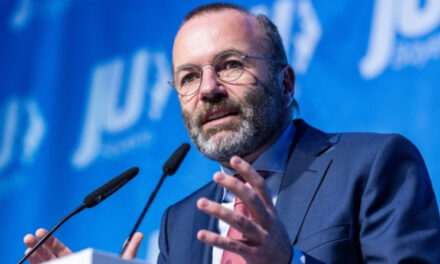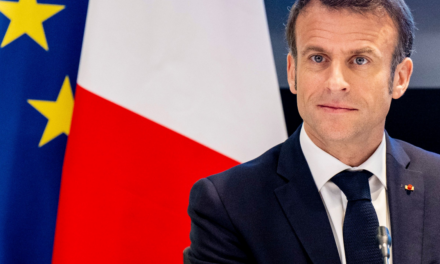Hungarians and Germans have the same good opinion of each other's nation, but at the same time there are differences in political issues, and overall the proportion of those who consider closer cooperation between the two states to be useful for their country has increased, but opinions are already divided regarding the possible areas of cooperation - it was revealed from this year's results of a public opinion poll conducted by the Nézőpont Institute with the support of the Konrad-Adenauer-Stiftung, which was presented on Wednesday morning as part of a conference.
The representative survey presented as part of the cooperation between the institutes was conducted in June-July 2022, involving 1,000 people per country. The results of the two datasets were presented by Sámuel Ágoston Mráz, head of the Nézőpont Institute. As it turned out, the proportion of good opinions about the other country is the same between Hungarians and Germans.
59 percent of Germans have a positive opinion of Hungary, while 56 percent of Hungarians think the same about Germany.
The study examined in both countries what they think about the other country on certain political and economic issues. In some respects, Germans and Hungarians have markedly different opinions about Hungary and Germany, and on some issues, a dividing line is drawn between the two nations based on the study.
Important information for the interpretation of the survey is that the individual opinions are not empirical evaluations, but rather perceptions based on domestic media information. The Nézőpont Institute previously highlighted that the polarity of the German public media's coverage of Hungary is one-sided:
in the case of 126 investigated broadcasts in 2021, 81.75 percent were negative from the point of view of the Hungarian government. That is why it is not surprising that 48 percent of Germans believe that the media cannot criticize the government in Hungary.
Regarding issues related to areas of cooperation, it can be generally stated that both countries would prefer closer cooperation. However, the two nations would consider deeper cooperation useful in other areas. While the Hungarians would put more emphasis on the economic development of the European Union and the fight against the national debt (61-61 percent), the Germans would place it in the area of political reform of the EU (78 percent) and the development of an efficient and humane migration and refugee policy (65 percent). closer cooperation is more useful.
Bence Bauer, director of the Mathias Corvinus Collegium Hungarian-German Institute for European Cooperation, and Zoltán Kiszelly, director of the Századvég Political Analysis Center, and Arne Gobert, president of the Deutscher Wirtschaftsclub Ungarn, evaluated what was said at the event in a panel discussion. Arne Gobert confirmed that what can be read in the German press often does not reflect the Hungarian reality. The Germans who are engaged in economic activity in Hungary have a positive opinion of the country based on real experience. Zoltán Kiszelly pointed out that the German public has credibility problems, as Germans are also interested in opinions that differ from the mainstream. That is why it is important to make our points known in German on as many platforms as possible. Bauer Bence called lack of knowledge the greatest danger in the relationship between the two nations. He emphasized that those Germans who have already been to Hungary have a higher proportion of good opinions about our country.
At the presentation of the barometer, Michael Winzer, head of the Konrad-Adenauer-Stiftung's representative office in Budapest, gave a welcome speech, who emphasized in his speech that this regular survey is an excellent opportunity to develop the traditionally good cooperation between the two nations based on data. It is important to know common values and differences, because only then can we manage them well.
Featured image: The full study is available at the link below.
Source and full article: Magyar Hírlap
Featured image: Viewpoint Institute












